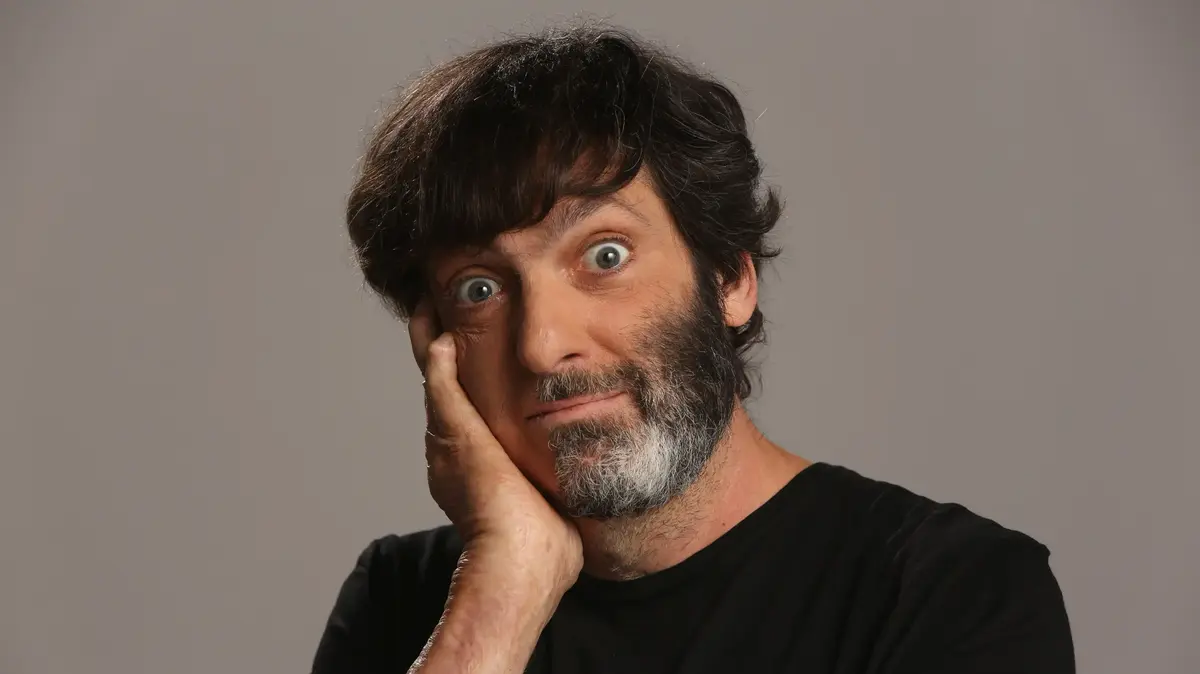Unconvincing and not by chance: Dan Arieli's series is like fast food for thought
"Why so?"
(Here 11), led by the charismatic intellectual, tries to dismantle in a communicative, clear and rhythmic way the attitude of human beings to complex concepts such as equality or exchange of opinions.
But because of its pretentiousness and desire to provide simple and beautiful explanations for big questions, it misses complexity and remains on a fairly superficial level
Nadav Menuhin
17/01/2022
Monday, 17 January 2022, 02:20
Share on Facebook
Share on WhatsApp
Share on Twitter
Share on Email
Share on general
Comments
Comments
Promo for the program "Why like this?"
With Dan Arieli (here 11)
While we did not notice, television was filled with psychologists, psychologists, and a host of television "experiments" examining human behavior.
There may be more experts on human behavior on screen today than chefs - the previous national television obsession.
After all, it must be admitted that in an era so disturbed and alienated, it is desirable and logical to talk about what triggers dynamics and communication between human beings.
The newcomer to the cauldron is Dan Arieli, a beloved and esteemed behavioral economist and celeb-intellectual, who wound up this week at the corporation with "Why Like This?", A documentary series focusing on human responses, based on research and behavioral psychology experiments. Are not real experiments, since this is forbidden).
Instead of taking advantage of his position for deepening, provides a superficial discussion.
Arieli (Photo: Haim Bergig)
"Why so?" Clearly relies on the reputation of the charismatic scientist, which is re-presented in each chapter - a reputation damaged this year due to several claims that have arisen regarding the methodology and data on which some of his research was based, and provoked an academic storm. In a series created by Yoav Shamir and Tanya Aizikovich, Arieli uses experiments, theory, animation, experts and even research on the animal world to dismantle as communicatively, clearly and rhythmically as possible the attitude of humans to complex concepts such as equality or exchange of views. In general, in the age of the Pike News, it is worthwhile to welcome programs that are accessible to science and research, and provide food for thought. The trouble is, in the case of "why like this," it's fast food.
Inequality and the exchange of opinions, certainly in Israel, are charged matters, which Arieli claims to sum up in simple principles.
But the analysis they receive as part of the series is superficial, inclusive and pretentious, which hardly takes into account variables such as history, place, cultural differences and a host of other contexts.
Behavior of animals in the wild can teach very little about human behavior in a city in Israel in the 21st century, with all due respect, and the human attitude to money and political or cultural values today is related to a thousand and one things that an experiment simulating monopoly play can not really explain.
More on Walla!
Apocalypse Now: While the plague is hitting the world, plagues are hitting television
To the full article
So true, when you zoom out so much, they all look like ants, but so you miss the little details, where as we know God is.
In this world, all opinions are in any case a purely identity and social matter and not a material one, and the provocations of the Zipper sons become a test case.
This may be a simple and beautiful explanation, but life is known to be more complex.
Access to knowledge and research is a complicated act, probably in hyperactive television and in a society that is constantly flooded with stimuli and contradictory information.
But it was Arieli who could have used his status and abilities to lead a much richer, deeper and more detailed series than "Why is that?".
culture
TV
direct watch
Tags
Dan Arieli
Here

